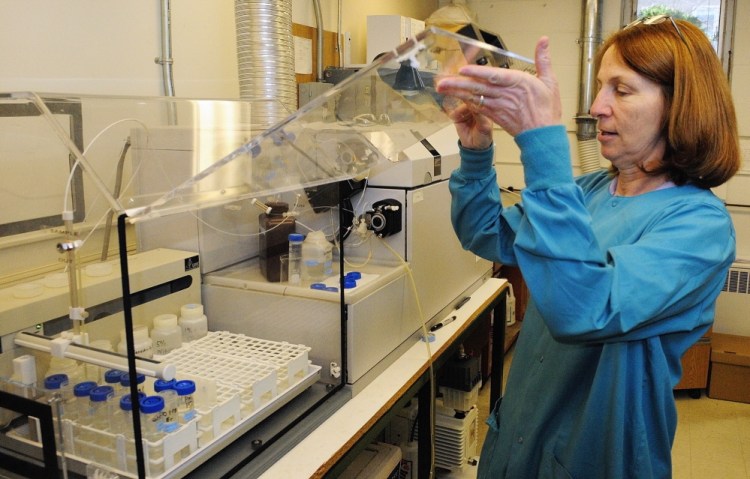AUGUSTA — Backers of a bill that would fund education around well water testing have zeroed in on a compromise that could advance the measure, suggesting exempting private companies from the fee that would pay for it.
The bill, sponsored by Rep. Drew Gattine, D-Westbrook, is one of two bills before the Maine Legislature aimed at increasing testing in the state amid increasing concern about arsenic in private water supplies after a five-year study of Kennebec County schoolchildren released last year by Columbia University and the University of New Hampshire found that exposure to low levels of arsenic could lower IQ levels by up to six points on a test.
A Dartmouth College study has said that 150,000 people across Maine could be drinking from wells with high concentrations of the carcinogen, which occurs naturally in the state’s bedrock. In 2012, State Toxicologist Andrew Smith said surveys indicated that 45 percent of Mainers with private wells knew if their well had been tested.
After changes proposed by advocates before the Legislature’s Health and Human Services Committee on Tuesday, the bill would place a $5 fee on tests conducted on private wells by the state-run Health and Environmental Testing Laboratory. Before, the fee would also have applied to private testers. Backers also suggested stripping an earlier provision that would have mandated all newly drilled Maine wells be tested for toxins.
Many in Maine’s business community opposed the bill because of those earlier provisions in a public hearing on the bill last week. But after the changes were proposed on Tuesday, many of those concerns were alleviated. Kevin Kaserman, manager of Dunbar Water — Mr. H2O, a southern Maine company that remediates and drills wells, said more money for education is needed, and he was happy with the changes.
“They are not the magic bullet because there is none, but they’re going to help raise awareness for water testing,” he said, “and I think that’s really where we have to attack it.”
Smith said the Maine Center for Disease Control is now funding outreach around well water through a two-year grant that provided $150,000 annually and will run out in August. He said the state lab conducts between 7,000 and 7,500 tests per year, so the fund could generate $35,000 annually for education.
The changes are intended to complement the other arsenic bill sponsored by Sen. Tom Saviello, R-Wilton. It would impose a 3 percent tax on water filters, putting that money into a fund to provide loans and grants to low-income homeowners for remediation. Saviello’s bill was endorsed by a legislative committee last week, while Gattine’s bill faces a vote from the committee before going to the full Legislature for consideration.
Emma Halas-O’Connor, an organizer for the Environmental Health Strategy Center, which supports the bill, said the buy-in from private businesses shows there’s a need to pass those bills.
“I think that legislators should take that as a signal that this is an important issue and one with enough consensus to get something done,” she said. “I hope that’s what we see in the next couple of weeks.”
Michael Shepherd — 370-7652
Twitter: @mikeshepherdme
Send questions/comments to the editors.



Success. Please wait for the page to reload. If the page does not reload within 5 seconds, please refresh the page.
Enter your email and password to access comments.
Hi, to comment on stories you must . This profile is in addition to your subscription and website login.
Already have a commenting profile? .
Invalid username/password.
Please check your email to confirm and complete your registration.
Only subscribers are eligible to post comments. Please subscribe or login first for digital access. Here’s why.
Use the form below to reset your password. When you've submitted your account email, we will send an email with a reset code.